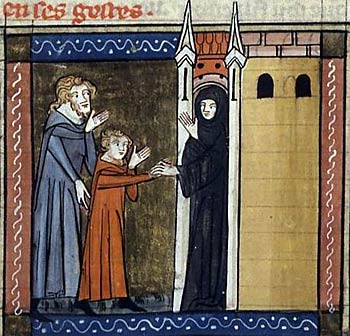Rev. Molly F. James, PhD
DFMS Noonday Prayer via Zoom
June 23, 2021
Genesis 15:1-12,17-18; Psalm 47; Matthew 7:15-20
May God’s Word be spoken. May God’s Word be heard. May that point us to the living Word who is Jesus Christ our Lord. Amen.
“Every tree that does not bear good fruit is cut down and thrown into the fire.” Really? We have to go here? All this judgment and condemnation. Where is the reassurance, the comfort, the inspiration we are all seeking in the midst of these uncertain and challenging times. Things seem “back to normal” in so many ways, and yet if we pause and reflect, even for a moment, we know that there is not really any “going back.” The world, and we, will never be the same again. This past year has been a crucible, an experience of challenges and struggle, an experience that has reshaped our understanding of the world and of ourselves. We may feel comfortable eating in restaurants and getting on airplanes, but we are fooling ourselves if we think we have just picked up where we left off in March of 202o.
So, as we try to navigate our way into this new, maybe we can say “post,” Pandemic way of being, I find it hard to hear this text. Hard to think of God judging us so harshly. Wasn’t one of the central lessons of the past year how much it matters to be compassionate? We are all in this together. Everything will be better if we can show each other more grace and care. How do we square those important lessons with texts that seem to divide the world into good fruit and bad fruit?
As I think I have shared with you all before, when I encounter one of the judgment texts, I return to insights gained from psychologist Eugene Kennedy who wrote a book of reflections after 9/11 entitled, Meditations at the Center of the World. In it he talks about some of the various judgement passages in Scripture - how we often get this theme of bad fruit or chaff being thrown into the fire. Instead of seeing it as dividing the world into good and bad people, Kennedy invites us to see and have compassion for the complexity of ourselves and other people.
We are fruit, mostly good and with a few bad spots. Or perhaps better yet we are the barrel of apples. So much good, and also the occasional bad apple. We are the whole stalk - the wheat and the chaff. None of us is all good or all bad. Life is just not that simple.
What Kennedy also reminds us of is that what is good in us is real, it is what is eternal. It is what lasts. God’s “judgment” of us is not wholesale. It is about helping us come to see ourselves fully and to let go, to throw into the fire that which does not give life. That which impedes our ability to grow in relationship with God and with each other. That is what should be cast into outer darkness. That is the fruit, the chaff that should be burned.
Hopefully one of the gifts that has come our way in the midst of this pandemic has been a sense of clarity about ourselves and the world. A sense of clarity about what really matters to us. Where are our priorities? What are the things that we put down that we don’t actually need to pick back up again? What are the things that we can let go of? We picked up plenty of new anxieties and challenges in the last year, and hopefully we also discovered more clarity about what brings us joy and where we want to invest our precious time and energy.
So, my friends, I hope that you will see in today’s Gospel an invitation rather than a condemnation. An opportunity to pause and reflect as the world reopens and we do more and more things. There is new life possible out of all the pain and loss of this past year. We are an Easter people. That truth stands at the heart of our faith. May you find this time of transition to be fruitful and life-giving. May it offer you an opportunity to grow, in all the various roles you inhabit. Most importantly may it offer you the opportunity to say yes to a path that affirms your identity as a beautiful and beloved child of God. Amen.

